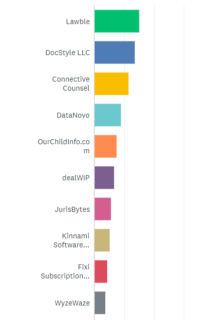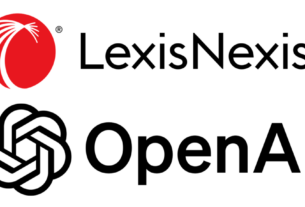In the continuing litigation between now-shuttered legal research startup ROSS Intelligence and long-established legal research giant Thomson Reuters, ROSS today filed an amended answer in which it raises a new counterclaim, asserting that TR is violating federal antitrust law by maintaining monopolistic and anticompetitive control over the legal research market.
“Westlaw has for far too long impermissibly controlled legal research and restricted access to the public law,” ROSS cofounder and CEO Andrew Arruda told my by email. “Enough is enough. We started ROSS with the mission to democratize law because the law belongs to the people. We will now fight in court to preserve that mission and end Westlaw’s monopoly on access to public law.”
As I reported here in December, TR’s lawsuit against ROSS alleging copyright infringement has forced ROSS to shut down its operations effective Jan. 31. But ROSS has vowed to continue fighting the lawsuit, which it characterizes as a bullying tactic by TR to shut down a potential rival.
TR, in a lawsuit filed last May, alleges that ROSS stole content from Westlaw to build its own competing legal research product. ROSS did this, TR alleged, by “intentionally and knowingly” inducing the legal research and writing company LegalEase Solutions to use its Westlaw account to deliver Westlaw data to ROSS en masse.
In December, ROSS partially withdrew a pending motion to dismiss and filed an answer and counterclaim, with that initial counterclaim alleging that TR has no valid copyrights in Westlaw content.
Today’s amended answer and counterclaim adds a new counterclaim, alleging that TR holds monopoly power over the legal research market and maintains that monopoly through a variety of practices designed to exclude competitors.
“Westlaw has not maintained its monopoly power in the market for legal search platforms by legitimately building on its historical advantage through product innovation and investment,” ROSS alleges in its latest pleading. “Instead, Westlaw has engaged in an intentional anticompetitive and exclusionary course of conduct to enhance entry barriers and raise costs to rivals. This course of conduct has reduced consumer choice and competition and stifled innovation – depriving the public of efficient, convenient, and affordable access to the public law.”
The counterclaim alleges that the primary way TR exercises its monopoly power is through restrictive licensing conditions. Although TR controls “the largest, most comprehensive, and most reliable” database of public law, it offers access to that database only to those who also license its legal search tools through the Westlaw platform.
“Westlaw’s exclusionary conduct is grounded in its anticompetitive business model, which only provides customers with access to its valuable database product through the integrated platform,” ROSS argues in its counterclaim. “This business model is akin to a tying scheme that raises entry barriers in the relevant markets and allows Westlaw to monopolize the distribution of public law.”
As a result, ROSS contends, “customers that strongly prefer the better legal search tools that competitors offer are forced to buy Westlaw’s ineffective legal search tools to get access to Westlaw’s database.”
ROSS also argues that TR’s restrictive licensing conditions inhibit innovation in the legal research market and excludes rivals from valuable research and development opportunities.
“This exclusionary conduct reduces entry from high-quality products, deters legitimate business activities, and depresses the competitive pressure to innovate,” the counterclaim says. “Though we have seen limited entry into the relevant markets from firms like Fastcase, Casemaker, and Casetext, these firms have struggled to gain traction or to constrain Westlaw’s monopoly.”
“There is no procompetitive justification for any of Westlaw’s exclusionary acts,” the counterclaim continues. “The only justifications for Westlaw’s conduct are to maintain its monopoly control and to restrain trade. As a result, consumer welfare is significantly harmed. And just as importantly, access to justice is substantially denied.”
For relief, the counterclaim asks the court to enjoin TR’s competitive conduct and award ROSS monetary damages.


